The Origins of Hip-Hop Culture and Its Values
Hip-hop culture originated in the South Bronx area of New York City during the 1970s.
Pioneered by DJs, MCs, breakdancers, and graffiti artists, it grew out of the economic despair and social issues in low-income, urban neighborhoods.
However, it also reflected the resilience, creativity, community, and competitive spirit of inner-city youth.
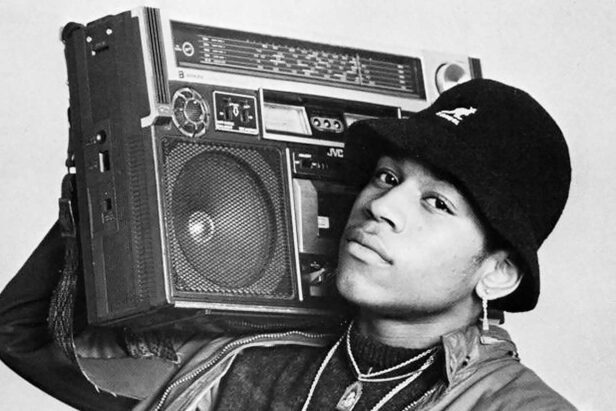
As hip-hop music and style evolved through acts like Grandmaster Flash and the Furious Five, Run-D.M.C, Public Enemy and others, it developed an ethos valuing authentic self-expression, speaking truth to power, overcoming adversity, being the best in your field and earning respect.
These tenets still underpin hip-hop today.
Parallels with the NBA
There are clear parallels between the trajectories of hip-hop and the NBA.
Both originated in America’s inner cities in the late 70s and grew to become pillars of mainstream culture over the following decades. They share similar values around skill, style, competitiveness and determination.
Like aspiring rappers, many NBA stars faced poverty, violence and familial struggles.
Basketball offered an escape, building discipline and dreams of success. The leagues’ largely African American demographic has an affinity with hip-hop – it resonates with their background and personality.
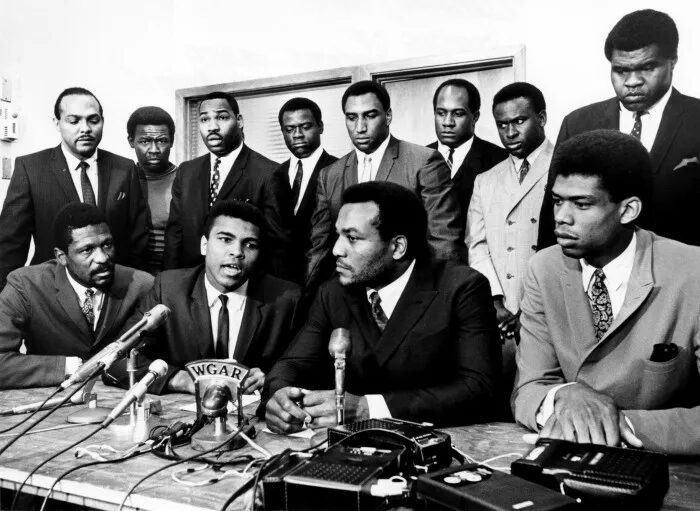
Hip-Hop Style’s Influence on the NBA
Over the years, hip-hop fashion has enormously impacted player style.
Things like cornrows, tattoos, flashy jewelry, baggy clothes and throwback jerseys moved from music to the NBA. Players express themselves through their pre-game outfits which often include designer streetwear brands like Rocawear, Sean John and Wu Wear.
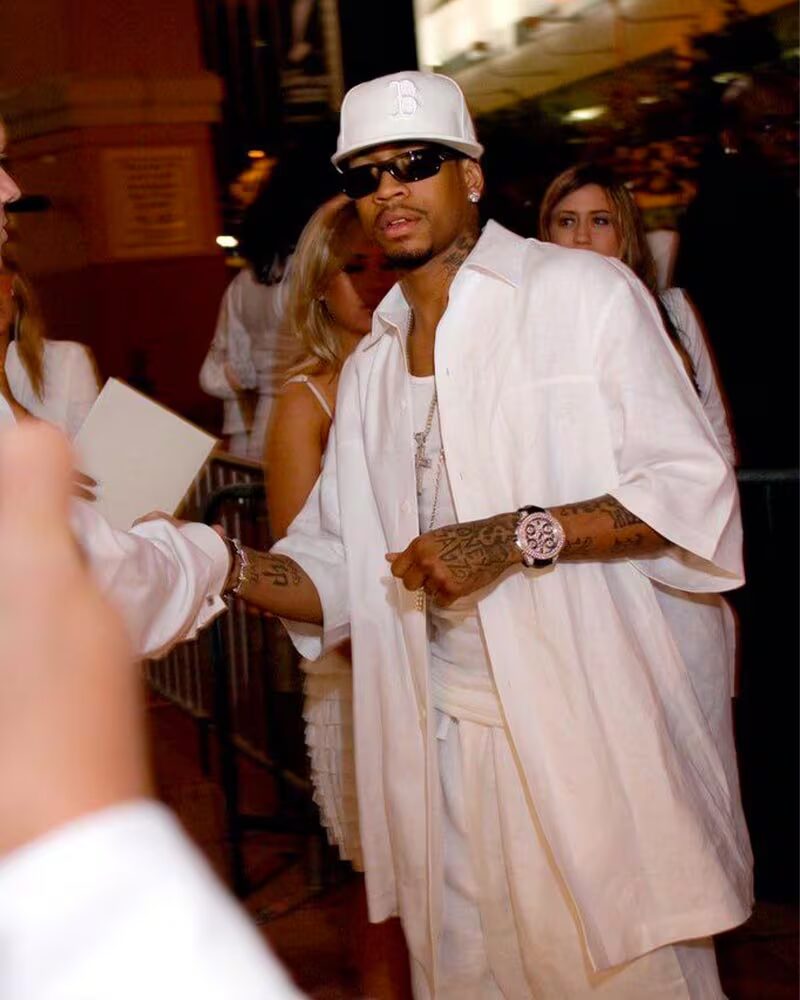
Allen Iverson was one of the first NBA stars to fully embrace hip-hop culture.
His baggy clothing, du-rags and visible tattoos made him an icon.
Over the following decades, stars like Kobe Bryant and LeBron James have exhibited their love for rap music through their pre-game fashion choices.
Kobe pranked the cameraman! 😂
— ESPN (@espn) April 12, 2020
(via @nba) pic.twitter.com/ddfDbb6Fin
The rise of sportswear brands like Nike and Adidas further accelerated the NBA adopting street style. Basketball shoes morphed into chunky sneakers and coveted urban fashion statements, endorsed by famous players in hip-hop music videos.
It’s now common for rappers to reference popular basketball sneakers in songs.
Rappers Embracing Basketball
From the 90s onwards, hip-hop artists frequently started referencing the NBA in lyrics.
Basketball – with its fast-paced energy, physicality and culture of trash talking – lent itself perfectly to rap braggadocio.
Rappers often compare their skills on the mic to ball handling skills on the court. They brag about their successes in both arenas, using NBA teams and elite players as a benchmark for being the biggest and best.
This lyrical embrace of basketball fueled the symbiotic relationship between the cultures.
As rappers shouted out superstars in songs, a mutual appreciation developed.
Allen Iverson and Jay Z forged a famous friendship rooted in their visionary aesthetic and take-no-prisoners attitude.
Today, rap megastars like Drake and Kendrick Lamar can be spotted courtside nationwide through the season.

Players Trying Out Rap Personas
Seeing hip-hop artists succeeding in multiple realms inspired NBA stars to explore music themselves. Although met with mixed success, many figures like Shaquille O’Neal, Tony Parker and LeBron James have released rap tracks and albums.
The most accomplished rapping NBA player is the Milwaukee Bucks‘ guard Damian Lillard who carved a legitimate hip-hop career as Dame D.O.L.L.A.
He has released 3 albums, frequently collaborates with rap stars, and is acclaimed for his technical lyricism. Basketball/rap crossovers like Lillard strengthen the bond between the cultures.
Business Ties and Marketing
There are also close business ties between the NBA and rap music.
Jay Z famously became a minority owner of the Brooklyn Nets in 2004, overseeing their re-brand and relocation. He later founded Roc Nation Sports, boasting NBA stars Kevin Durant and Kyrie Irving on its books.
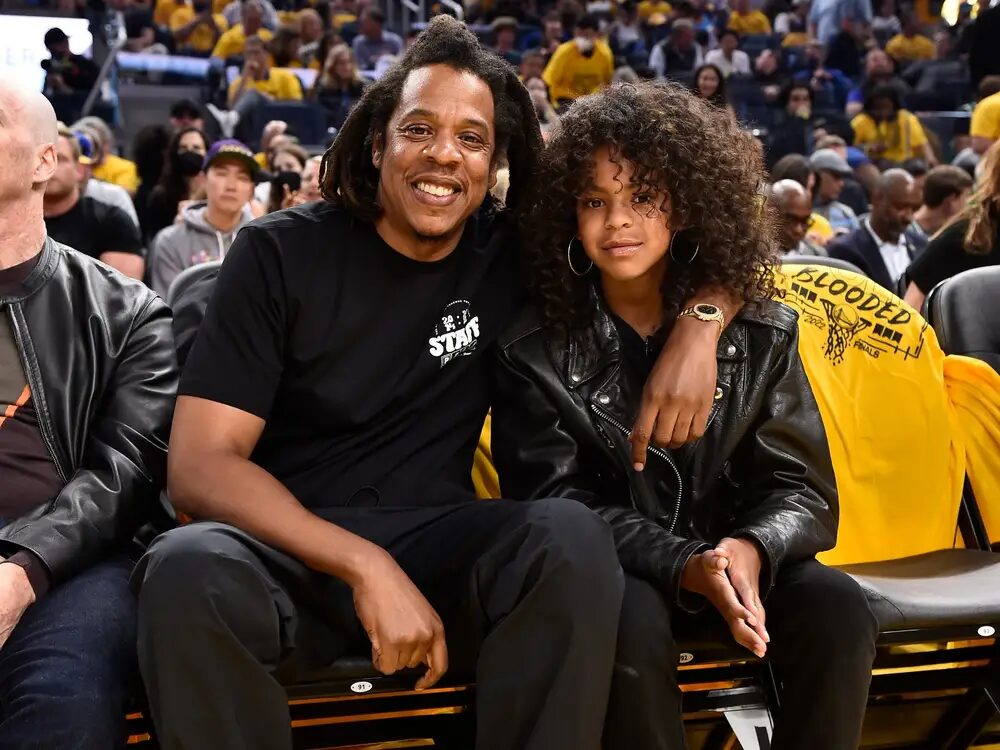
The synergy extends to marketing deals too. Adidas has leveraged hip-hop to promote signature sneakers by NBA ambassadors like Damian Lillard and James Harden.
Sprite has run campaigns featuring LeBron James and rapper Vince Staples, highlighting the brand’s connections to both cultures.
The music played during time-outs and intervals at NBA games is overwhelmingly hip-hop, keeping fans engaged through rap’s high energy appeal.
Artists like Meek Mill create anthemic pump-up songs that teams blast in changing rooms to get players fired up pre-game.
Sixers had Meek Mill ring the bell pregame 🙌pic.twitter.com/yj2dLclPlx
— ClutchPoints (@ClutchPoints) June 2, 2021
NBA Stars Impacting Rap Style
The relationship also sees basketball influencing hip-hop style. As the NBA clamped down on baggy uniforms in the late 90s, rappers moved towards more tailored clothing.
The emergence of preppier stars like Dwyane Wade and LeBron James sparked interest in fitted suits and leather jeans.
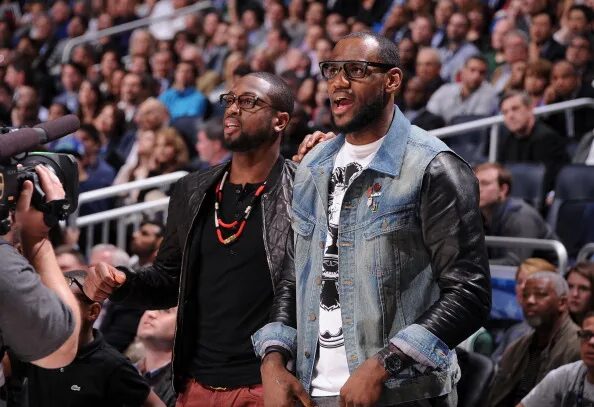
Russell Westbrook is now hip-hop’s favorite style icon, known for his bold, experimental fashion-week outfits.
Emerging rappers take style cues from Westbrook‘s fearless individualism when cultivating their image.
His avant-garde looks even inspired a Nas lyric boasting “Russell Westbrook swag, never boring.”
Shared Stories of Struggle
However, beyond the surface glitz, NBA stars and rappers share more profound bonds through similar stories of struggle. Many prominent voices in hip-hop have been vocal in supporting athletes speaking out on issues like racial injustice, police brutality and economic inequality.
When Dwyane Wade lost his cousin to gun violence in 2016, he and LeBron James turned to Jay Z and Beyonce for support during their grief.
Campaigns like LeBron’s More Than A Vote have been boosted through alliances with rappers helping motivate and educate voters.
Figures like Meek Mill who have been incarcerated lend a credible voice to shine light on structural biases. They stand in solidarity with NBA players recognizing their privilege and power to drive social change.
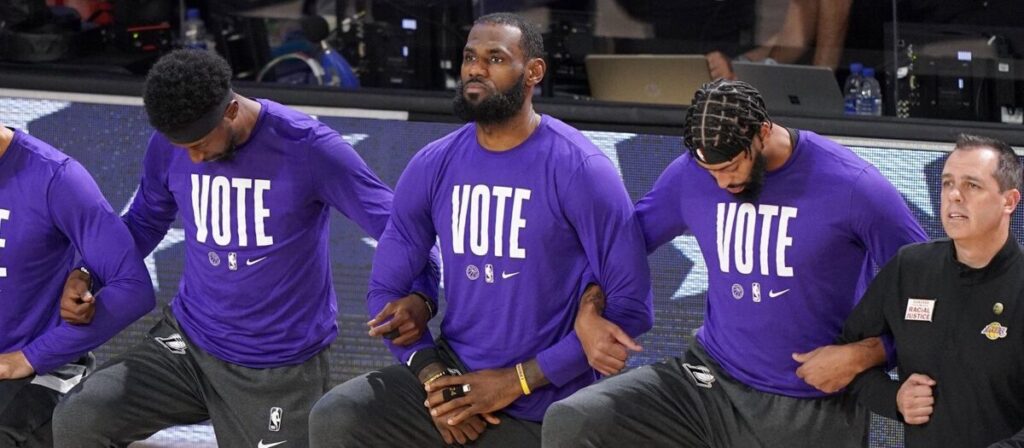
Outlook for an Even Stronger Relationship
As the NBA continues trending towards individual self-expression and hip-hop pushes ever further into the mainstream, their bond grows greater each year.
Rappers shout out emerging talents like Luka Dončić and Zion Williamson for their ferocious talent and swagger.
NBA players sign deals with rap entrepreneurs like Jay Z, Kanye West and Drake for business ventures on and off the court.
Stars will keep honing their musical chops during the off-season while courtside fixtures like Rick Ross keep NBA references spinning in verses.
With shared experiences, values and aspirations, basketball and hip-hop culture are destined for an even deeper intertwining over the coming decades.
Sources:
www.sportskeeda.com/basketball/exploring-influence-hip-hop-culture-nba
bleacherreport.com/articles/298652-how-hip-hop-has-helped-the-nba
www.rapreviews.com/2023/11/how-the-nba-got-so-involved-with-hip-hop-culture/





